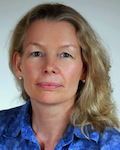On the east side of New York, the year has gotten off to a busy start at the UN with meetings of the Open Working Group on Sustainable Development Goals. Although I’ve participated in multilateral processes for more than a decade, my more recent engagement from a philanthropic perspective has generated new insights about the unmet potential of philanthropy in development co-operation. And here I’m referring to the thousands of institutions giving from endowments or doing private grant-making for activities in developing countries.
Indeed, philanthropy was a central pillar of international aid until the middle of the last century, through foundations like Rockefeller, Carnegie and Ford, and broader forms of South-South giving. That is now dwarfed by official development assistance, but the recognition of the importance of partnerships with non-governmental actors to effective development has grown since the Millennium Declaration of 2000. Though civil society has experienced a ‘hot and cold’ interaction, there are watershed moments, like the groundswell of input to the UN Secretary-General’s High Level Panel on the Post-2015 Agenda. And engagement with the private sector is expanding, a significant point being the UN Conference on Sustainable Development (Rio + 20) in June 2012, where I witnessed a huge number of businesses finally realising that their co-operation is integral to solving social and environmental challenges.
The OECD, UNDP and the UN more broadly have all expanded their attention to partnerships, but philanthropy is latest to – and still least present at – the table. In a series of meetings in 2013, the Ford Foundation, Rockefeller Foundation, European Foundation Center, global WINGS network, and others explored ways to ensure that philanthropy engages more often, and more effectively, with official aid and development processes.
Progress on bringing philanthropic institutions into development cooperation processes has been uneven, for a few reasons. First, most foundations – and even more so emergent individual philanthropists – do not want to be constrained by bureaucracy and negotiation. Those who have large pools of capital or endowments at their disposal can be bold in vision, demanding in expectation, and nimble in action. Second, many foundations give preeminence to the role of their grantees, supporting their diverse voices to influence policy, practice and public awareness – and view their own participation as secondary. And finally, while UN development discussions are concentrated in New York, philanthropy is dispersed worldwide, with a growing proportion on the West Coast of the US and in fast-growing economies like India, China and Nigeria. So if philanthropy is to become more engaged, collaboration must be responsive to this context.
The effort will be worthwhile. Philanthropic resources can be a crucial complement to official resources in at least two ways. These funds represent “patient” capital – supporting non-profit and government grantees to implement both tested and new approaches over a long period, despite changes in government administrations and political parties. Notably, long-term foundation support in the field of health has enabled enormous strides, from specific interventions to creating new institutions and alliances. These funds also represent risk capital – funding innovative approaches and pilot projects where possible failure is a given. Philanthropy’s often entrepreneurial approach to social enterprise, job creation, technology and building networks can be a real value-add to more traditional development aid.
In some ways the planning for future development co-operation and aid effectiveness is set. We reference guiding documents (think Busan, Accra and Paris) in ways that may leave out those who haven’t yet come into the tent. A stream of meetings to debate bracketed text has been scheduled. But there is a sense of opportunity around new and deeper partnerships as the post-2015 goals and architecture are crafted. For example, the interlinking of social, environmental and economic goals will inevitably require expanded interaction between different disciplines and groups – like environmental and human rights groups, or youth campaigners and development economists – and multi-themed philanthropies can play a role to support this. Different approaches to possible new goals, like a place-based goal for urban areas, will be facilitated by a new constellation of actors working toward shared objectives and developing new indicators – and philanthropy can provide a neutral space to explore such approaches. At a recent event hosted by the Ford Foundation, at the end of a long day of official meetings, government representatives lauded the rare and welcome opportunity to delve into issues less formally.
The urgency of tackling enduring challenges like inequality, poverty and climate change impacts is growing, and the stakes are high to get things right. We will need to go beyond existing partnerships to a widening circle and new coalitions for action. But it must be recognised that the modus operandi of philanthropy, like business, differs from governments. This sector won’t wait while governments argue over bracketed text and hold debates on the finer points of goal-setting. They may share the goals, but not the patience for process. Nevertheless, greater engagement of philanthropy will bring lasting benefits and impact to the people on whose behalf we work. These different sectors should look for common ground, and tackle the structural and practical impediments to progress together, making the boldest commitments they can and then demonstrating concerted action to achieve them.
Heather Grady, is a consultant to the Conrad N. Hilton Foundation and others on engagement in the Post-2015 Development Agenda.
This post was first featured on the Global Partnership’s Effective Development Co-operation Blog




Comments (0)